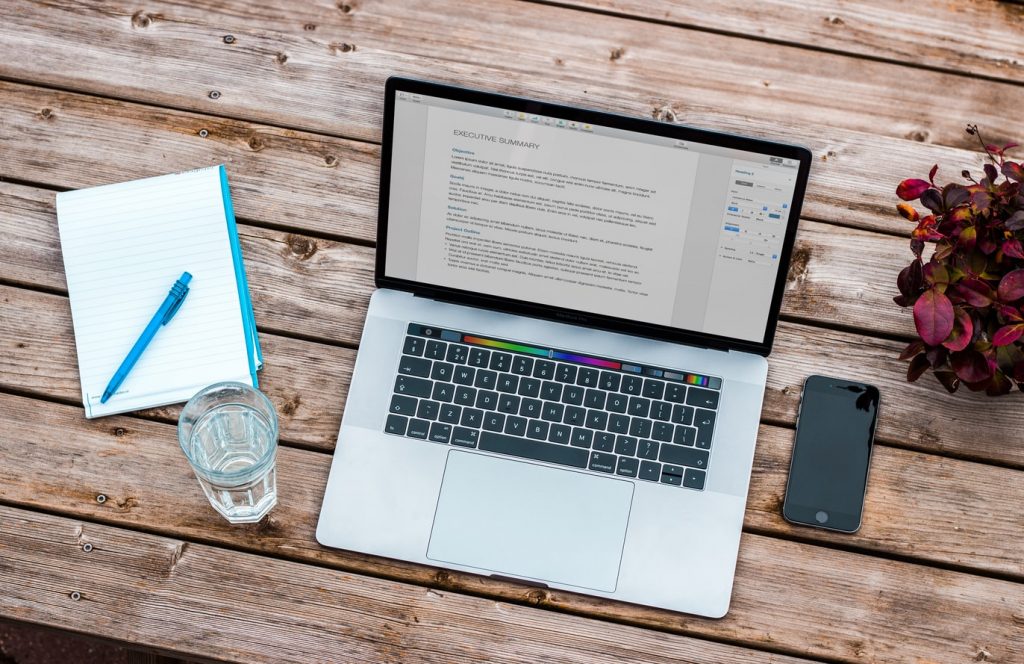Although it may not be a new concept, journaling is a hot topic right now! From the bullet, intuitive, or guided journaling, the variations can get confusing. Is it just another fad?
In this article we’ll be covering:
- What journaling is
- Benefits of journaling and how it can elevate your mindset
- Different types of journaling
- Journaling Ideas
- Journaling E-book
What is Journaling?
Journaling is all about exploration and finding a new perspective. In its simplest form, journaling is writing down what’s on your mind. As cliché as it sounds, getting your thoughts out of your head and onto paper really lifts a weight off your shoulders.
Journaling is a form of self-care that can improve your mindset, mental health and how you perceive the world.

Benefits of Journaling
Does writing something out that you already know, actually help?
Here’s the thing. When you’re feeling low, and in a spiral of negative thoughts, your brain shuts down. Your amygdala (the stress detector in the brain) takes control, and the rational thinking part of your brain is clouded. You struggle to make sense of things, and this includes what thoughts are going around your head.
When you’re caught in this spiral it becomes harder to come out of it and control what thoughts you’re having.
So, even if you think you know what’s going on up there… some of it goes unnoticed.
From automatic thoughts and subconscious beliefs, journaling will help you get to the root of a problem.
When you see your thoughts and feelings in front of you, things start to become much clearer. It will help you organise your thoughts and work out, which are helpful and which are hurtful.
What else can journaling help you do?
Manage your emotions: one study revealed that expressive writing could help reduce feelings of anxiety. Journaling will help you build a better relationship with your emotions and pull you out of those dark spirals. What triggered your anxiety/depression? Why are you feeling this way? What do you need to be at peace again?
Organisation: whether you’re an avid planner, goal setter, or you want some direction, journaling helps you clarify what you want in life and how to move forward with your goals.
Reflection: Journaling is a popular way to reflect on your growth. One of the areas people struggle with on their self-love journeys is recognising how far they have come. This is where journaling comes in. With a regular check-in, you will keep track of your progress, appreciate your wins, and look at how you have grown between journaling sessions.
Self-Discovery: Think about someone you love. Think about what makes them laugh, what makes them embarrassed and what makes them feel on top of the world. When you know someone inside out, you can love every part of them and care for them accordingly—approach self-love in a similar fashion. You can use journaling to get to know yourself, your likes, dislikes, pet peeves and limits. When you discover who you really are, you’ll be able to care for yourself more deeply and love yourself more authentically.
Manifestation: writing down your manifestations is a powerful way to bring your desires into reality, from doing inner and shadow work to practising gratitude. Journaling may be the key to manifesting greatness into your life!
Different Types of Journaling
Bullet Journaling
What can you use a bullet journal for? In short – everything! Perfect for the designers and artists out there; Bullet journaling is versatile and very creative.
Most people get a notebook with blank pages; this allows them to customise their page. Some things you may include in a bullet journal include tracking your habits, such as water intake, tracking your mood, making inspirational pages full of pictures, patterns and colours, recording your favourite moments from the day, and SO much more.
Intuitive Journaling
This style of journaling is particularly powerful for anyone looking to go deeper and do inner work. Intuitive journaling is all about getting in touch with your intuition and digging deeper to find out where your core issue lies.
It is relatively simple to start this practice. Firstly, make sure you’re somewhere quiet, calm, and you won’t be disturbed. When you’ve found a comfortable place, grab some paper, a pen and choose a question you want to focus on. To tap into your intuition, you can start by taking some slow deep breaths. If it helps you centre yourself, close your eyes while you breathe deep.
When you’re ready, open your eyes, ask the question aloud, and write down whatever comes to mind. You can set a 5-minute timer if this suits you, or you can keep writing until you feel you’ve done enough for that session.
The key to intuitive journaling is letting your thoughts flow onto the paper without judgement. Like in meditation, we are simply observing what comes up and letting it flow. You aren’t looking to stop, change or force your thoughts; simply try to write down anything that jumps into your mind. By the end of your session, your paper will look like a stream of consciousness.
Tip: Some people don’t like doing this type of exercise in their main journals as it can sometimes look messy. In this incidence, do it on a spare piece of paper. When you’re finished, write up any significant findings in your main book, where you can take time and care to make it look wonderful! (if that’s your vibe!).

Guided Journaling
A guided journaling session involves having prepared questions to answer. You can tailor these to how you’re feeling or towards a set goal.
This type of journaling is great for those who prefer to have the questions already done for you. In a guided journaling session, you may choose a set of tailored questions towards a certain goal, whether that be self-love, starting your morning and so on.
Shop our journaling e-book, which contains guided journaling layouts for you to follow!
Sign up to our email list to get 10% off your order & receive loving letters to your inbox
Brain Dump
It is what it says on the tin. With this technique you write everything down that is happening in your head.
I know what you’re thinking… is this the same as intuitive journaling? Not quite. Intuitive journaling is all about asking your intuition a question and diving deep for the answer.
A brain dump is perfect when you’re in a moment fueled by emotion, whether this is anger, anxiety, or even happiness! It can be a great time to do a brain dump because we often act on this emotional charge and make decisions we later regret.
To elaborate on this, think about a time you were angry and were in an argument. Did you say something you later regretted? Maybe you did something you wouldn’t usually do? Either way, you were acting on that emotional charge. This is where a brain dump would come in. When you feel that charge arising, take a moment for yourself and write everything out of a piece of paper.
Doing this activity will give you a chance to express your emotion safely and securely. Once the emotional charge has passed, you will be in full control again and can make an informed decision about what to do next. You may choose to have a calm discussion with the person who affected you (if there was a person involved), or you may decide that your energy is best protected and it’s not worth your time.
Shop our new Positive Mindset Bundle, including a brain dump notepad!
Gratitude Journaling
From improving your mental health to manifesting your deepest desires, gratitude journaling is a great practice to try. By giving thanks for the things you have in your life, you will expand your awareness and begin to notice more positive experiences in your life. Gratitude is a fantastic way to develop a more positive outlook on life.
After practising gratitude daily, you will find yourself going from saying, “Why do these bad things happen to me?” to “I am grateful for the lessons I have learnt; they made me who I am today”.
To begin a gratitude practice, start by writing a list of things you’re grateful for in your life. You may start with your family, friends, possessions or experiences. But, can you go into a little more detail?
- Who are you grateful for?
- What qualities are you grateful for, about that person?
- Can you give thanks to nature? The sun, the rain etc
- What experiences can you feel gratitude for?
- Can you give thanks for even the smallest things?
A thankful person is thankful under all circumstances.
Baha’u’llah

Journaling Ideas
- Below are some journaling prompts to get you started:
- What physical sensations am I feeling?
- What triggered these feelings in me?
- Is my ego taking control? Can I approach this situation more mindfully?
- What do I want my life to look like in 3 years?
- What one thing can I do right now to work towards that goal?
- What activities make me feel alive?
- What activities bring me calm?
- Write about a time you felt complete joy
- What people are you grateful for and why?
The Naturally Elevate Journaling E-book:
Take your journaling one step further with our guided journaling e-book.
With over 70 journal prompts, this e-book will be the companion you’ll need to help you dig deep and elevate your mindset. Featuring layouts for your morning and evening routine to helping you manage and move through specific emotions.
What our customers had to say:
Contains:
- Over 70 journal prompts.
- Morning and evening journal prompts (perfect to add to your daily routine!).
- Journaling layouts to help you move through emotions from anger, anxiety, and sadness.
- A journaling layout to promote happiness and make the most of those positive memories.
- A self-discovery journaling layout to dive deep into who YOU really are.
- And last but not least… a self-love journal layout to help you find, feel and discover the love.
Designed to help you cultivate self-love, self-discovery and enhance your mindset. This highly effective journaling download will take you on a journey to understand and cultivate love and compassion.


